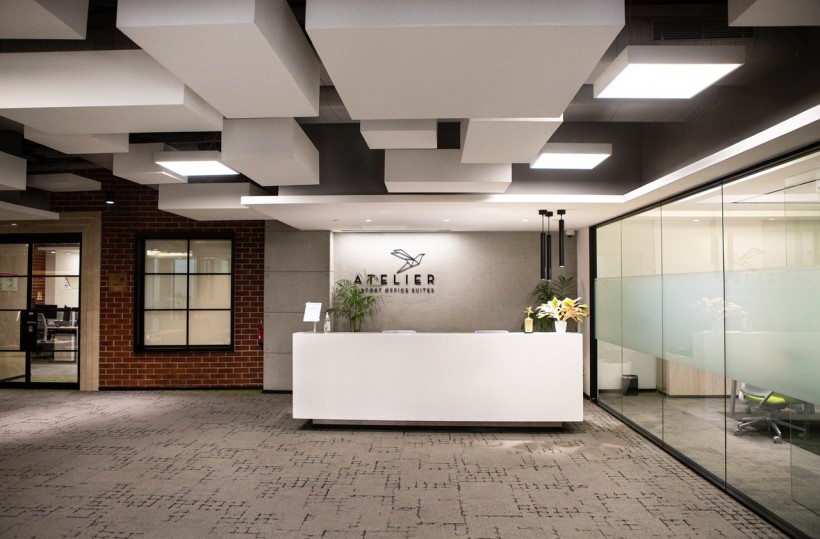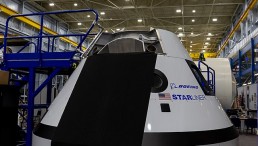The biggest challenge hotels face today is attracting and retaining a new generation of guests. From long-term, full-service hoteliers to the modern millennial guest, hotel owners are witnessing growth across numerous segments within the industry. This has led developers to reimagine the design of the hotel experience.
Touchless room service
Touchless room service is one of the latest technological trends to hit the hospitality industry. It involves a system that allows guests to order room service without having to make contact with anyone in the hotel. This can be done through an app, a website, or even through a kiosk in the lobby. Touchless room service has several advantages over traditional room service:
It's more efficient. Guests don't have to call and wait on hold while they're trying to order their food. They can do it from their phone or computer at any time of day or night, and they won't have to speak with anyone if they don't want to.
It's cheaper for hotels because they don't have to hire as many people for room service. In addition, there's less chance of mistakes being made since no one is taking orders over the phone anymore.
Guests love it because they don't have to leave their rooms when they're hungry - all they need is their smartphone or tablet and an internet connection.
Robotic concierge and room service
The hotel of the future will have robot servers and receptionists. Imagine being greeted by a robot when you arrive at your hotel, checking in without having to wait in line, and having your room key delivered by an autonomous vehicle so you don't need to carry it with you all day.
Virtual reality entertainment
Modern hotels in Washington DC and other major urban centers have always been about providing entertainment for guests. Now they're moving past TVs and video games to offer more immersive experiences using virtual reality headsets. This can include things like sitting on a virtual beach or exploring a zoo without leaving your hotel room. And if VR isn't enough, hotels can also provide augmented reality glasses that let guests interact with their surroundings through augmented reality overlays.
The outdoors is brought inside
Hotels are moving away from focusing on the exterior of their buildings and are instead placing greater emphasis on how people feel when they're inside them. As technology advances, hoteliers are finding ways to bring more natural light into rooms and make guests feel as though they're surrounded by nature rather than concrete walls and steel beams.
One way this is done is through large windows that allow guests to look out onto beautiful views around the hotel or the cityscape below them. Another way is by bringing nature indoors with plants and trees throughout public spaces, such as lobbies and lounges.
Spa upgrades
The spa is an integral part of the hotel experience, and with the rise of wellness and fitness tourism, it's more important than ever to make your spa a destination in itself. Many hotels have already begun experimenting with different spa trends from around the world, including Japan's natural hot springs and Korea's volcanic mud baths (both of which are available at many U.S. resorts). You'll also see more relaxation rooms with hammocks and cozy seating areas - perfect for unwinding after a long flight or stressful day at work.
Improved safety protocols
In the future, hotels will have a lot more security and safety protocols than they do now. One of these is probably facial recognition software. Hotels will be able to recognize people by their faces if they're registered guests or if they are known for being troublemakers. Hotels will also use this technology for other purposes, like making it easier for guests to check-in and out. The future is even brighter as hotels will continue to add new features that make it safer and easier for people to travel. The following are some of the top safety features you'll find in hotels in the future:
Safety keys: This is a new way to lock your hotel room door using a key fob or other devices that makes it impossible for anyone else to enter your room without permission.
Safe storage: Some hotels will offer safe storage units where you can keep valuable items while you sleep or work out at the gym. The unit will only open when someone has entered their fingerprint or when an RFID tag is used in conjunction with it.
Keyless access: In order to enter your room, guests will use their smartphone instead of a physical key card or key fob. This means that there will be no need for them to carry around extra objects as they go about their day - everything they need will be stored on their phone or wristband.
With the rise of new technology, hotel design is changing. We are starting to see designers focus on the entertainment aspect of a hotel, not just its function as housing. This focus on design will continue to grow in popularity and will start to focus more on entertaining guests through better technology.
* This is a contributed article and this content does not necessarily represent the views of sciencetimes.com











![Venus Lost Water and Dried Out Due to Chemical Reaction HCO+ Dissociative Recombination [Study]](https://1721181113.rsc.cdn77.org/data/thumbs/full/53493/258/146/50/40/venus-lost-water-and-dried-out-due-to-chemical-reaction-hco-dissociative-recombination-study.jpeg)



